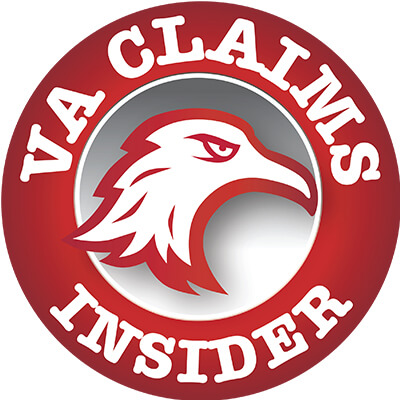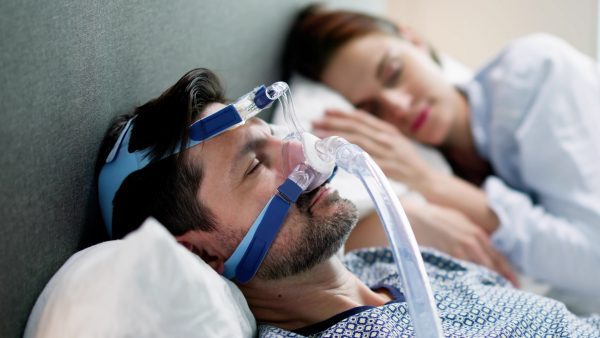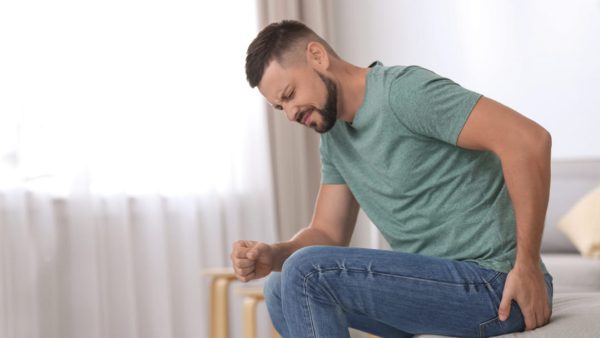Looking for Expert-Level VA Claim Answers?📱Call Us Now! 737-295-2226
One of the reasons why sleep apnea in veterans is such a hot topic is because, according to the VA statistics, three out four veterans get denied their sleep apnea claims yearly! That’s an astounding number that stands out. That means that only 25% of veterans that apply for a sleep apnea claim are approved.
Like many veterans face daily, there are quite a few steps that you must take to ensure your request gets reviewed and approved by the VA. Fortunately, you’ve come to the right page where VA Claims Insider will show you 3 Ways to Prove Your Sleep Apnea Claim.
3 Ways To Prove Your Sleep Apnea Claim:
#1. Sleep Apnea MUST be Service-Connected
One main reason why veterans repeatedly get denied by the VA is that they submit their sleep apnea claim with no clear evidence of service-connection. What does that mean?
As the phrase implies, “Service-connected” means that the disability aggravated while in service. If you were diagnosed while in the service, and you have consistent documentation, then you have a better chance of getting a service-connection.
Unfortunately, there aren’t a lot of cases where sleep apnea is commonly diagnosed in the service.
#2. What if you conducted the study after you separated or retired?
Most veterans fall in the category of conducting a sleep study when they got out (including myself), and it was evident by the doctor that you had sleep apnea and had a CPAP (Continuous Positive Airway Pressure) machine. Acquiring a CPAP machine still does not constitute an automatic claim approval. On the bright side, since the VA provided the CPAP machine, that means it’s in your medical records.
Your medical records are essential in all of your claims. Especially when it comes to sleep apnea, a complex process where most of the information will depend on how well it’s been service-connected.
#3. Secondary To A Current Rated Disability
One solution is to claim secondary to a current rated disability, such as PTSD (Post-Traumatic Stress Disorder). Why PTSD? Research has shown that having PTSD has a higher chance of developing sleep apnea. The connection between the two is directly correlated.
A secondary condition occurs when a service-connected condition, or treatment for that condition, causes or aggravates another condition. That other condition would be “secondarily” service-connected. By understanding what a secondary condition is, it will be easier to connect the dots in the primary state.
Because proving your sleep apnea claim is such a complicated process, many veterans go the route of obtaining a rated PTSD disability by the VA. Most vets can vouch for PTSD while in the service. Again, you will need to gather the medical information to prove your PTSD.
Sleep Apnea MUST have Lay Evidence and Medical Evidence
In the previous section, service-connection is key to build your claim and ensure to the VA that you have ample documentation. The lay evidence outlines the symptoms that occurred while in the service, such as snoring, fatigue, and gasps of oxygen while sleeping. The medical evidence comes from a medical professional stating that the symptoms were probably presented as sleep apnea even though you are not in the service anymore.
The process previously stated may seem arduous, but to prove your claim, you must do your due diligence on gathering all of the required information. Remember that 3 out of 4 veterans get denied on their sleep apnea claim? Well, this section is crucial, ensuring that you have presented the critical information which can be well on your way of approving your claim.
Here’s an article on How to File a VA Claim for PTSD.
Once you have a current and rated PTSD connection, then you will pursue the sleep apnea claim.
According to an article on Psychiatry Advisor, “The implication is that veterans who come to PTSD treatment, even younger veterans, should be screened for obstructive sleep apnea. They have the opportunity to be diagnosed and treated,” co-principal investigator Sonya Norman, a researcher at the San Diego VA, said in a news release from the American Academy of Sleep Medicine.
“This is critical information because sleep apnea is a risk factor for a long list of health problems such as hypertension [high blood pressure], cardiovascular disease, and diabetes. And psychological problems including depression, worsening PTSD and anxiety,” she explained.
Currently, the link between sleep apnea and PTSD in Veterans is not clear. The possible factors creating a link between PTSD and sleep apnea can be chronic stress from PTSD, poor sleep, and combat-related sleep disturbances.
VA Ratings for Sleep Apnea in Veterans
If a veteran requires a continuous positive airway pressure (CPAP) device, the VA disability rating for sleep apnea is at 50 percent or above. With increased claims, the rating schedule for sleep apnea is expected to be included in the VA’s overhaul of the rating schedule (38 CFR Part 4), though no recent changes.
The most current disability rating and severity of symptoms can be found in the Code of Federal Regulations – 38 CFR 4.97 Schedule of ratings—respiratory system:
● 100% – chronic respiratory failure with carbon dioxide retention, the need for a tracheostomy, or cor pulmonale. Cor pulmonale is the enlargement or failure of the right side of the heart due to lung disease.
● 50% – if a veteran requires the use of a breathing assistance device, such as a CPAP machine
● 30% – the Veteran is experiencing persistent daytime hypersomnolence (i.e., a condition characterized by chronic daytime sleepiness that does not improve even with sufficient sleep)
● 0% – if the Veteran’s status is asymptomatic (i.e., a condition that is not producing symptoms) but has a documented sleep disorder
If your VA Disability claim for Sleep Apnea has been denied, do not give up the fight! We have helped thousands of Veterans get what they deserve, including winning sleep apnea claims! When you’re ready, this is the fastest way to get started.
Deserve a HIGHER VA Rating? WE CAN HELP.
Join our premier education-based membership program, VA Claims Insider Elite, connect with an expert-level Veteran Coach (VC) within minutes, and finally get the rating you deserve. Click the button below to get started.
About the Author

About VA Claims Insider
VA Claims Insider is an education-based coaching/consulting company. We’re here for disabled veterans exploring eligibility for increased VA disability benefits and who wish to learn more about that process. We also connect veterans with independent medical professionals in our referral network for medical examinations, disability evaluations, and credible independent medical opinions and nexus statements (medical nexus letters) for a wide range of disability conditions.




